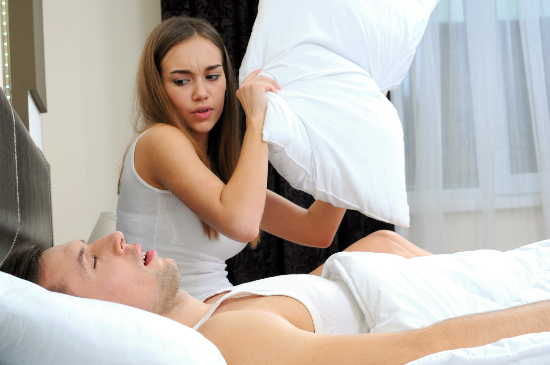Obstructive sleep apnea is a breathing disorder which is most commonly treated with Cpap or some other CPAP alternatives like breathing devices and mouthpieces. Medicines generally are not used to treat this condition. The goal of treating sleep apnea are to restore normal breathing pattern during sleep and relieve symptoms like daytime sleepiness and loud snoring. Treatment may improve other health problems connected to sleep apnea, like high blood pressure, diabetes, anxiety, etc. It can also reduce the risk for stroke and heart disease. If you suffer from sleep apnea, talk to your doctor about the treatment that will best work for you.

Lifestyle changes – If you have gentle sleep apnea, some little changes in your habits or daily activities may be exactly what you need.
- Avoid medicines and alcohol that make you sleepy.
- Lose weight if you are obese or overweight.
- Sleep on side rather than on your back.
- Try to keep the nasal passages open with allergy medicines or nasal sprays, if needed.
- If you smoke, quit. Talk with your doctor about products and programs that can help you.
CPAP is No.1 treatment for sleep apnea. A CPAP machines consists of a mask placed over your nose and mouth, or just over your nose. The device softly blows air and the pressure helps keep your airway open during sleep. However, these machines may cause side effects to some people like stuffy or dry nose, irritated skin on your face, headaches and dry mouth.
If your CPAP equipment is not adjusted right, you may get discomfort and stomach bloating while wearing the mask. If you have some of these problems, work with your doctor in order to reduce this issues. There are many different types of masks and CPAP machines. Tell you doctor if you are not pleased with the type you are using. And if you have hard time adjusting to CPAP machines, it may be best if your doctor prescribes CPAP alternatives.
Mouthpieces – These devices are one of many CPAP alternatives you can find available to treat your sleep apnea. They are great solution for people who have mild case of sleep apnea and for those who snore loudly during sleep but do not have sleep apnea. An orthodontist or a doctor can make a custom-fit mouthpiece for treating this common disorder. This device will adjust your tongue and lower jaw to help keep your airways open. If you use these CPAP alternatives, tell your doctor if you feel pain or discomfort to have the device adjusted to fit better.
Surgery – This is the last CPAP alternatives to consider. If not a single CPAP device works for you, then you may need surgery. The type of surgery and how it will work depend on the cause of your breathing disorder. Surgery is done to open up breathing passages and it generally includes stiffening, shrinking or removing excess tissue in the throat and mouth or resetting the lover jaw.



